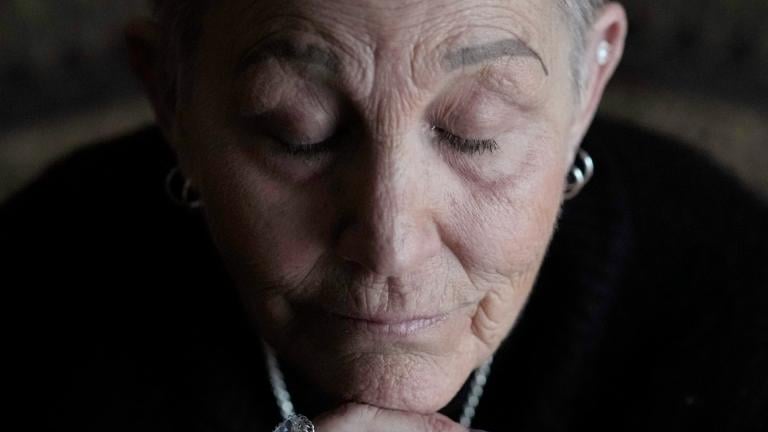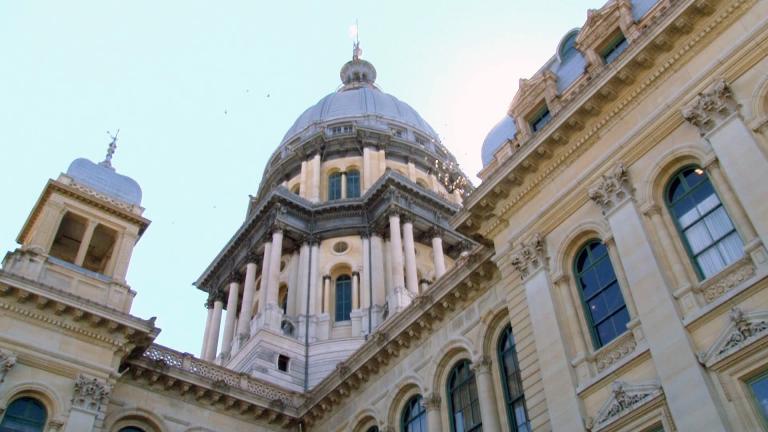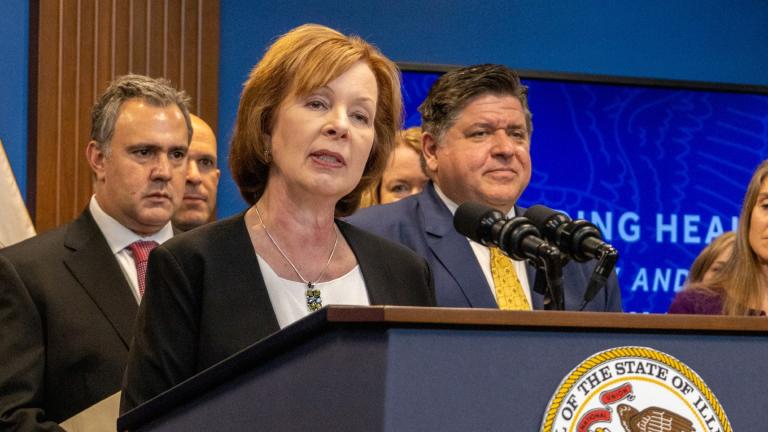The wheels are in motion to remove state Rep. Luis Arroyo from office, a day after the Chicago Democrat was indicated on a federal bribery charge.
House Speaker Michael Madigan on Tuesday announced that a new investigative committee will meet Friday and then again on Nov. 8.
The committee will be made of Democratic Reps. Fred Crespo, Justin Slaughter and Barbara Hernandez, and Republican Reps. Margo McDermed, Dan Ugaste and Grant Wehrli.
Arroyo was absent Tuesday from Springfield, the second day of the fall veto session.
State Sen. Martin Sandoval, D-Chicago, was also absent. He hasn’t spoken publicly since his legislative offices and home were raided by the FBI in mid-September. He has not been charged with any wrongdoing.
State Sen. Tom Cullerton, D-Vernon Hills, did not skip the veto session even as he fights embezzlement charges, to which he has pleaded not guilty, for allegedly being a ghost payroller for the Teamsters union.
The string of corruption allegations – Madigan on Monday insisted that he is “not a target” despite being named in a May search warrant and subpoena of the City Club of Chicago – is the source of frustration and unease at the capitol, as well as calls for action.
Senate President John Cullerton told reporters Tuesday that he wants to work with the House to research potential ethics laws and changes. But he was wary of moving to expel either Sandoval or his distant cousin, Sen. Tom Cullerton.
“There’s a whole bunch of issues with regard to that. There’s issues dealing with whether or not the activity allegedly directly relates to the legislature, like taking a bribe to pass a bill, something like that. As opposed to something that’s not related,” he said. “There’s issues with due process for the people that are charged with a crime, allowing them to defend themselves while they’re also defending themselves in a different forum. It’s very complicated.”
House Republicans aren’t waiting.
On Tuesday, they introduced House Bill 3947, which would ban state lawmakers and their close relatives from being paid to lobby municipalities.
“Obviously someone who’s a member of the General Assembly carries a different weight when talking to a local official about an action that they’d like to have taken on their behalf,” said Rep. Tom Demmer, R-Dixon.
Arroyo, a state representative since 2006 and father of Cook County Commissioner Luis Arroyo Jr., was paid $2,500 monthly to lobby the city of Chicago on behalf of a sweepstakes company (sweepstakes machines are legally dubious video gaming machines similar to legal video poker ones often seen in restaurants and bars). The criminal complaint made public on Monday details an alleged scheme that had Arroyo arranging for a $2,500 monthly bribe to be paid to a state senator in exchange for the senator’s sponsoring legislation favorable to the sweepstakes industry.
The Chicago Tribune and Sun Times have reported that the senator – who in reality was working as an informant for the FBI – is Sen. Terry Link, D-Waukegan.
Link has denied that he is that senator, and on Tuesday told WTTW-News during an interview on the Senate floor: “I haven’t been accused of a thing. Period. Zero. Nothing.”
The potential that Link was wearing a wire has given rise to the notion that lawmakers and lobbyists will be uneasy negotiating with him, even as Link remains the Senate’s point man on gambling issues.
Chicago Mayor Lori Lightfoot is beseeching the General Assembly to tweak a new law authorizing a Chicago casino; according to an independent study by gaming experts, a Chicago casino will not be viable unless the tax rates set in statute are reduced.
But Link told WTTW News that an agreement has been reached, at least on basic principles for a new gambling bill.
“I think in principle the deal is done. And I think that it answers the concerns of everybody,” he said.
He said it doesn’t just deal with Chicago, as “we can’t change their tax structure and leave the other (tax structures) onerous to the other casinos.”
The pending, broad plan would be a “win-win situation for everybody, not just the city of Chicago,” Link said. “It’s a win situation for the existing casinos and the other news ones and I think that ... if you’re going to be fair you have to do it for everybody you can’t do it just for city of Chicago and have all these other people say, ‘Hey wait a second what about us?’”
Link would not provide details, and the mayor’s office did not respond to requests for comment.
A spokeswoman for Gov. J.B. Pritzker would only give a statement reading:
“The governor believes that it’s in the best interest of the state and the city of Chicago that the parties involved find a solution that will be acceptable to the General Assembly. Administration staff have provided consistent feedback to Senate and House staff, as well as the city, regarding potential ideas for moving forward, and we will continue to work on resolving this issue.”
Revenue from new casinos would pay for infrastructure projects in a construction plan heavily touted by Pritzker as a major accomplishment of his first legislative session.
While Link said he expects movement on the issue during the second half of the veto session in early November, critics say doing anything involving gambling would be imprudent, given the corruption cloud over the statehouse.
Meanwhile, Lightfoot faced another potential setback as 13 Democratic legislators announced in a letter they will not get on board with her proposed graduated real estate transfer tax unless she agrees to spend a majority of the revenue it would generate on issues regarding homelessness.
“With over 86,000 Chicago residents experiencing homelessness, we must take the opportunity that we have right now to meaningfully fund solutions to this egregious problem,” the letter reads. “It is our intention to support your Real Estate Transfer Tax increase only if a significant amount is statutorily dedicated to homelessness, and we believe at least 60% should go toward that purpose.”
A real estate transfer tax is paid whenever homes are sold; Lightfoot wants alderman to pass a city ordinance that would reduce that tax if homes cost less than $500,000 but raise the tax on higher-priced homes. But the City Council can’t act unless it first gets the authority from the state legislature.
Tuesday’s pronouncement by the 13 progressive legislators (Reps. Kambium Buckner, Marcus Evans, Robyn Gabel, Will Guzzardi, Lisa Hernandez, Thaddeus Jones, Theresa Mah, Aaron Ortiz, Delia Ramirez, Justin Slaughter, Ann Stave-Muray and Celina Villanueva), most of whom represent Chicago, means that unless Republicans change their mind and lift their collective opposition, the plan has no chance of passage during veto session.
Lightfoot, in Chicago battling an ongoing teachers strike while her Springfield legislative team lobbied her agenda in Springfield, immediately rejected the push.
“We’ve got to be realistic about managing taxpayer dollars in a responsible way. And 60% of a dedicated stream, in perpetuity, is not responsible given what our other budget stresses are,” she said.
Pritzker’s top veto session priority – moving to consolidate suburban and downstate municipal pension funds – has not gotten much attention thus far, but language was introduced (via an amendment to Senate Bill 616) late Tuesday afternoon that means it’s at least poised to move. The Illinois Fraternal Order of Police union remains opposed.
Follow Amanda Vinicky on Twitter: @AmandaVinicky
Related stories:
Latest Corruption Charge Has Legislators Squirming
Illinois Rep. Luis Arroyo Faces Federal Public Corruption Charge
Spotlight Politics: Federal Probe Circling Closer to Speaker Madigan








